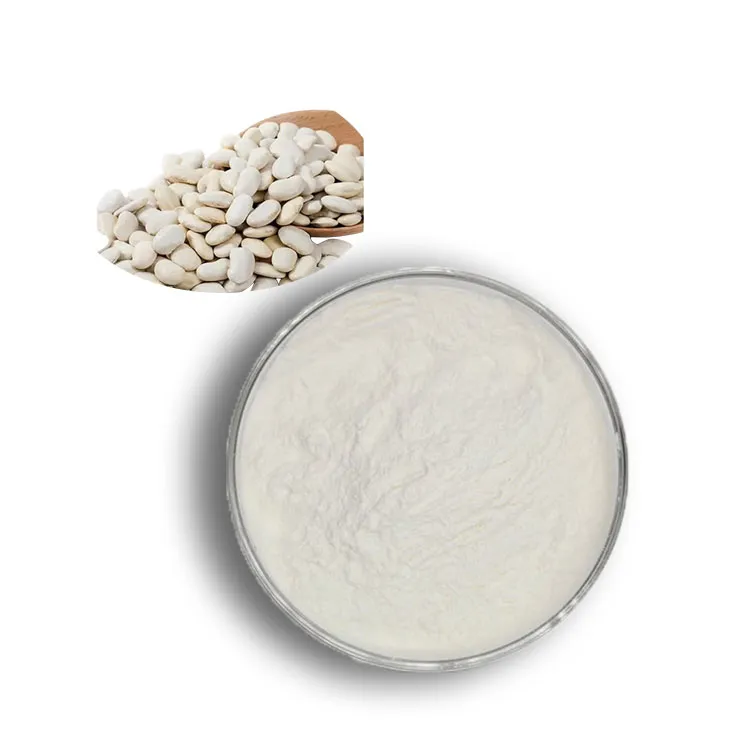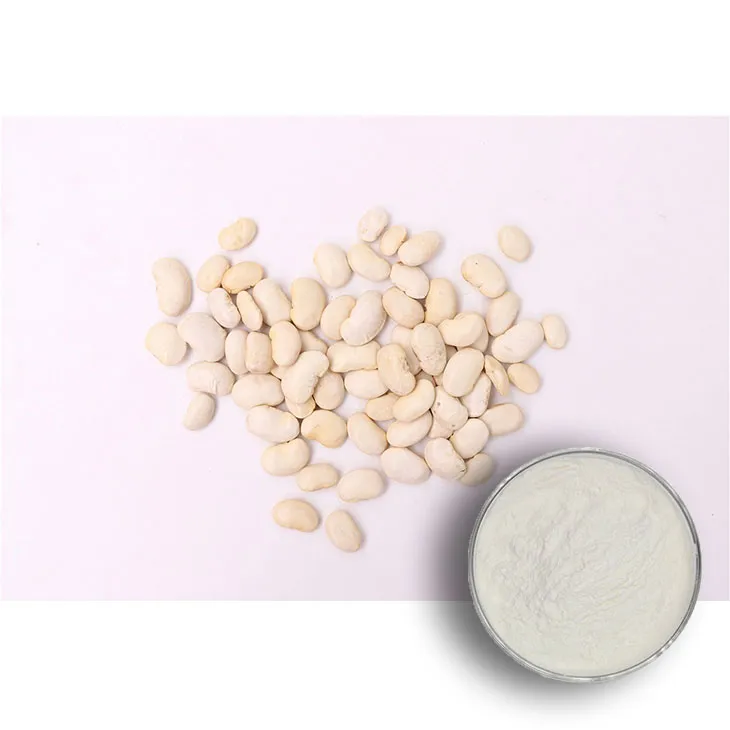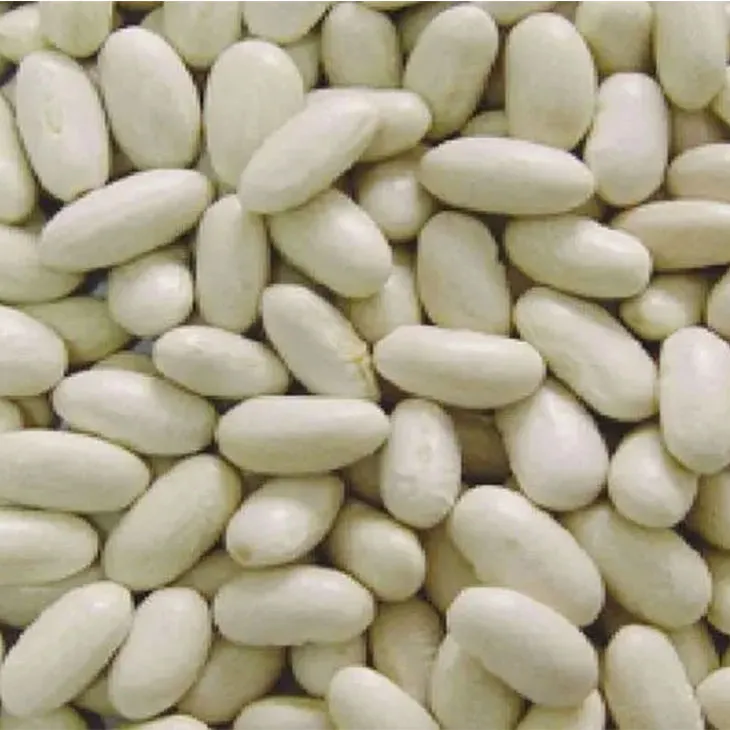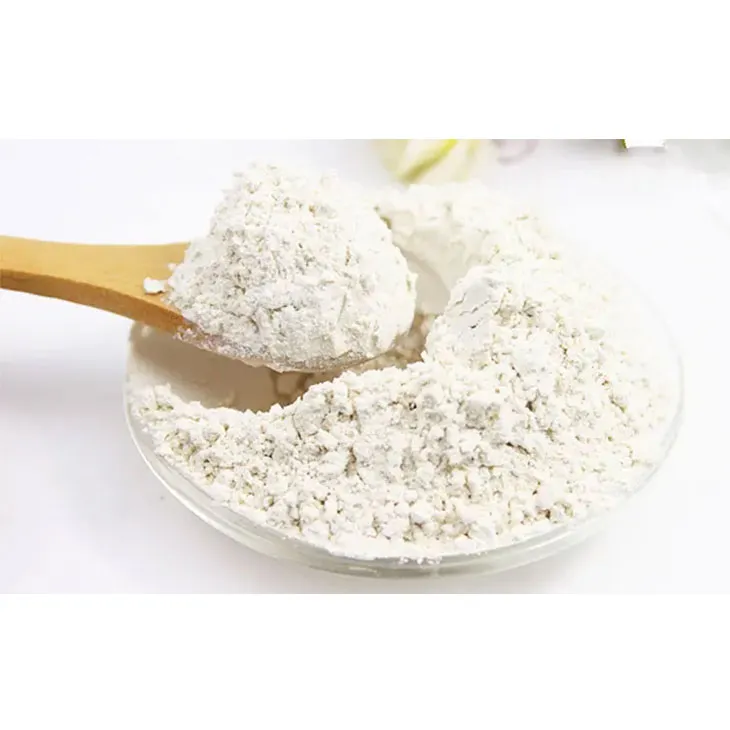- 0086-571-85302990
- sales@greenskybio.com
Optimal Bioavailability of Kidney Bean Extracts.
2024-11-26

1. Introduction
Kidney Bean Extract has been the focus of much research due to its potential health benefits. It contains various bioactive compounds such as lectins, which are thought to play a role in health promotion. However, for these beneficial effects to be fully realized in the human body, the bioavailability of the Kidney Bean Extract is of crucial importance.

2. Understanding Bioavailability
Bioavailability refers to the fraction of an administered substance that reaches the systemic circulation and is thus available at the site of action. In the case of Kidney Bean Extract, it is not simply about consuming the extract, but rather about how much of the active components within the extract can be effectively absorbed, distributed, metabolized, and excreted in the body.
2.1 Importance of Bioavailability
Low bioavailability can limit the effectiveness of kidney bean extract. For example, if only a small percentage of the active compounds are absorbed, the expected health benefits, such as blood sugar regulation or weight management, may not be fully achieved. High bioavailability, on the other hand, ensures that a sufficient amount of the beneficial components are available to interact with the body's physiological processes.

3. Factors Affecting Bioavailability of Kidney Bean Extract
3.1 Solubility
Solubility is a key factor. Kidney bean extract contains a variety of compounds, and their solubility in different physiological fluids can vary widely. Insoluble components may not be easily absorbed in the gastrointestinal tract. For instance, some of the larger protein - based compounds in the extract may have limited solubility in the aqueous environment of the gut.
- One way to improve solubility is through formulation. Encapsulation of the extract in liposomes or other lipid - based carriers can enhance the solubility of hydrophobic components.
- Another approach is to use co - solvents. Some natural co - solvents like glycerol or propylene glycol can be added to the extract formulation to increase the solubility of certain compounds.
3.2 Stability
The stability of kidney bean extract is also crucial for bioavailability. Many bioactive compounds in the extract can be degraded by factors such as enzymatic activity in the gut, pH changes, and exposure to oxygen.
- Enzyme inhibitors can be added to the extract to prevent degradation by gut enzymes. For example, protease inhibitors can protect protein - based active components from being broken down by proteases in the digestive tract.
- pH - sensitive coatings can be used to protect the extract during its passage through the acidic environment of the stomach and the alkaline environment of the small intestine.
- Antioxidants can be incorporated into the extract formulation to prevent oxidative degradation of the bioactive compounds.

4. Strategies for Enhancing Bioavailability
4.1 Nanotechnology - based Approaches
Nanotechnology offers innovative solutions for enhancing the bioavailability of kidney bean extract.
- Nanoparticle Encapsulation: Nanoparticles can be designed to encapsulate the extract. These nanoparticles can be made from biocompatible materials such as polymers or lipids. The small size of nanoparticles (typically in the range of 1 - 1000 nm) allows for better penetration through the mucus layer in the gut and enhanced cellular uptake. For example, polymeric nanoparticles can be engineered to release the extract in a controlled manner, ensuring a sustained supply of the active components to the target cells.
- Nanoemulsions: Nanoemulsions can be formulated with kidney bean extract. They consist of small droplets of oil dispersed in an aqueous phase, stabilized by surfactants. Nanoemulsions can improve the solubility and dispersibility of the extract, making it more accessible for absorption. They can also protect the extract from degradation during digestion.
4.2 Probiotic - mediated Delivery
Probiotics can be used as carriers for kidney bean extract.
- Certain probiotic strains have the ability to adhere to the intestinal mucosa. By conjugating the kidney bean extract with these probiotics, the extract can be targeted to the site of absorption in the gut. For example, Lactobacillus species can be genetically modified or chemically conjugated with the extract to enhance its delivery to the intestinal epithelial cells.
- Probiotics can also influence the gut microbiota in a way that promotes the absorption of the extract. They can modulate the gut environment, such as by adjusting the pH or producing certain enzymes that can enhance the bioavailability of the kidney bean extract.

5. In - vitro and In - vivo Studies
5.1 In - vitro Studies
In - vitro studies play an important role in understanding the bioavailability of kidney bean extract. These studies are typically carried out in cell culture models.
- Cell Uptake Assays: Cell lines such as Caco - 2 cells, which are often used to mimic the intestinal barrier, can be used to study the uptake of kidney bean extract components. By measuring the amount of extract that enters the cells over a period of time, researchers can assess the potential for absorption.
- Stability Studies: In - vitro stability studies can be conducted in simulated gastric and intestinal fluids. These studies help to determine how stable the extract is under different physiological conditions and can guide the development of strategies to improve its stability.
5.2 In - vivo Studies
In - vivo studies are essential for validating the results obtained from in - vitro studies.
- Animal Models: Rodent models, such as rats and mice, are commonly used in in - vivo studies. These animals can be fed with kidney bean extract in different formulations, and parameters such as blood levels of the active components, tissue distribution, and physiological effects can be measured. For example, in a study on diabetic rats, the effect of kidney bean extract on blood glucose levels can be monitored, along with an assessment of the bioavailability of the extract.
- Human Trials: Human trials are the ultimate test for evaluating the bioavailability of kidney bean extract. These trials can be designed as single - dose or multi - dose studies. Parameters such as pharmacokinetic profiles (including absorption, distribution, metabolism, and excretion) and clinical outcomes (such as changes in body weight, blood sugar levels, or lipid profiles) can be measured.
6. Future Perspectives
The field of enhancing the bioavailability of kidney bean extract is still evolving. There are several areas that hold promise for future research.
- Personalized Medicine: With the increasing understanding of individual genetic differences, there is potential for personalized approaches to optimize the bioavailability of kidney bean extract. For example, individuals with certain genetic polymorphisms may respond differently to different formulations of the extract. Future research could focus on developing personalized formulations based on an individual's genetic makeup.
- Combination Therapies: Combining kidney bean extract with other bioactive substances or drugs may enhance its bioavailability or its overall effectiveness. For example, combining the extract with a prebiotic or another natural compound with complementary health benefits could lead to synergistic effects.
- Advanced Delivery Systems: Continued development of advanced delivery systems, such as stimuli - responsive nanoparticles or targeted microspheres, could further improve the bioavailability of kidney bean extract. These systems could be designed to release the extract at the specific site of action in the body, minimizing off - target effects and maximizing the therapeutic potential.
7. Conclusion
Achieving optimal bioavailability of kidney bean extract is a complex but important goal. Understanding the factors that affect bioavailability, such as solubility and stability, and implementing strategies to enhance it, including nanotechnology - based approaches and probiotic - mediated delivery, can unlock the full potential of kidney bean extract for health promotion. In - vitro and in - vivo studies play a crucial role in evaluating these strategies, and future research should focus on areas such as personalized medicine, combination therapies, and advanced delivery systems to further improve the bioavailability and effectiveness of kidney bean extract.
FAQ:
What is bioavailability?
Bioavailability refers to the proportion of a drug or other substance that enters the circulation when introduced into the body and so is able to have an active effect. In the case of kidney bean extract, it's about how much of the extract can be absorbed and utilized by the body effectively.
Why is solubility important for the bioavailability of kidney bean extract?
Solubility is crucial as it determines how well the kidney bean extract can dissolve in the body's fluids. If the extract has low solubility, it may not be able to mix well with the fluids in the digestive tract or bloodstream, which can limit its absorption. A more soluble extract is more likely to be absorbed and thus have better bioavailability.
How does stability affect the bioavailability of kidney bean extract?
Stability ensures that the kidney bean extract retains its active components in their effective forms. If the extract is unstable, its active ingredients may degrade or be transformed into less effective forms before they can be absorbed. Stable extracts are more likely to be absorbed intact, leading to better bioavailability.
What are some potential strategies for enhancing the bioavailability of kidney bean extract?
Some potential strategies include formulation improvements, such as encapsulation to protect the extract from degradation. Another strategy could be combining the extract with substances that enhance its solubility or absorption. Additionally, optimizing the extraction process to obtain a more pure and bioavailable form of the extract can also be helpful.
Can diet or other substances interact with kidney bean extract to affect its bioavailability?
Yes, certain foods or substances in the diet can interact with kidney bean extract. For example, some substances may bind to the active components of the extract, reducing their absorption. On the other hand, some substances may enhance the solubility or stability of the extract, thus increasing its bioavailability. It's important to be aware of potential interactions when consuming kidney bean extract.
Related literature
- Bioavailability and Metabolism of Plant - Based Extracts: A Review"
- "Enhancing the Bioavailability of Natural Extracts: Case Study of Kidney Bean"
- "Solubility, Stability and Bioavailability of Botanical Extracts"
- ▶ Hesperidin
- ▶ citrus bioflavonoids
- ▶ plant extract
- ▶ lycopene
- ▶ Diosmin
- ▶ Grape seed extract
- ▶ Sea buckthorn Juice Powder
- ▶ Beetroot powder
- ▶ Hops Extract
- ▶ Artichoke Extract
- ▶ Reishi mushroom extract
- ▶ Astaxanthin
- ▶ Green Tea Extract
- ▶ Curcumin Extract
- ▶ Horse Chestnut Extract
- ▶ Other Problems
- ▶ Boswellia Serrata Extract
- ▶ Resveratrol Extract
- ▶ Marigold Extract
- ▶ Grape Leaf Extract
- ▶ blog3
- ▶ blog4
-
The Best Cranberry Extract in 2024.
2024-11-26
-
The best natural source of diosmin.
2024-11-26
-
100% Pure Organic Hedyotis Diffusa Extract.
2024-11-26
-
How to make powder with baicalin?
2024-11-26
-
Standard - process ginseng root extract.
2024-11-26
-
Cat Claw Extract
2024-11-26
-
Hawthorn powder
2024-11-26
-
Rosemary extract
2024-11-26
-
Alfalfa Meal
2024-11-26
-
Citrus bioflavonoids
2024-11-26
-
Green Tea Extract
2024-11-26
-
Hawthorn Extract
2024-11-26
-
Curcuma Longa Extract/Turmeric extract
2024-11-26
-
Cranberry Extract
2024-11-26
-
Scutellaria Extract
2024-11-26





















